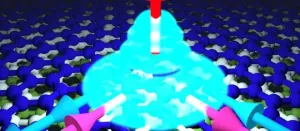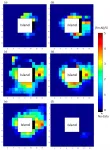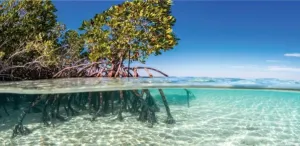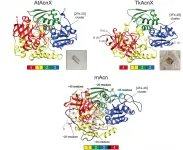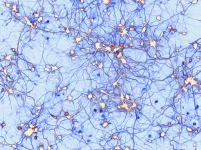Repurposed drugs present new strategy for treating COVID-19
Virtual screening of 6,218 drugs and cell-based assays identifies best therapeutic medication candidates
2021-07-08
(Press-News.org) A joint research group from KAIST and Institut Pasteur Korea has identified repurposed drugs for COVID-19 treatment through virtual screening and cell-based assays. The research team suggested the strategy for virtual screening with greatly reduced false positives by incorporating pre-docking filtering based on shape similarity and post-docking filtering based on interaction similarity. This strategy will help develop therapeutic medications for COVID-19 and other antiviral diseases more rapidly. This study was reported at the Proceedings of the National Academy of Sciences of the United States of America (PNAS).
Researchers screened 6,218 drugs from a collection of FDA-approved drugs or those under clinical trial and identified 38 potential repurposed drugs for COVID-19 with this strategy. Among them, seven compounds inhibited SARS-CoV-2 replication in Vero cells. Three of these drugs, emodin, omipalisib, and tipifarnib, showed anti-SARS-CoV-2 activity in human lung cells, Calu-3.
Drug repurposing is a practical strategy for developing antiviral drugs in a short period of time, especially during a global pandemic. In many instances, drug repurposing starts with the virtual screening of approved drugs. However, the actual hit rate of virtual screening is low and most of the predicted drug candidates are false positives.
The research group developed effective filtering algorithms before and after the docking simulations to improve the hit rates. In the pre-docking filtering process, compounds with similar shapes to the known active compounds for each target protein were selected and used for docking simulations. In the post-docking filtering process, the chemicals identified through their docking simulations were evaluated considering the docking energy and the similarity of the protein-ligand interactions with the known active compounds.
The experimental results showed that the virtual screening strategy reached a high hit rate of 18.4%, leading to the identification of seven potential drugs out of the 38 drugs initially selected.
"We plan to conduct further preclinical trials for optimizing drug concentrations as one of the three candidates didn't resolve the toxicity issues in preclinical trials," said Woo Dae Jang, one of the researchers from KAIST.
"The most important part of this research is that we developed a platform technology that can rapidly identify novel compounds for COVID-19 treatment. If we use this technology, we will be able to quickly respond to new infectious diseases as well as variants of the coronavirus," said Distinguished Professor Sang Yup Lee.
INFORMATION:
This work was supported by the KAIST Mobile Clinic Module Project funded by the Ministry of Science and ICT (MSIT) and the National Research Foundation of Korea (NRF). The National Culture Collection for Pathogens in Korea provided the SARS-CoV-2 (NCCP43326).
-About KAIST
KAIST is the first and top science and technology university in Korea. KAIST was established in 1971 by the Korean government to educate scientists and engineers committed to industrialization and economic growth in Korea.
Since then, KAIST and its 67,000 graduates have been the gateway to advanced science and technology, innovation, and entrepreneurship. KAIST has emerged as one of the most innovative universities with more than 10,000 students enrolled in five colleges and seven schools including 1,039 international students from 90 countries.
On the precipice of its semi-centennial anniversary in 2021, KAIST continues to strive to make the world better through its pursuits in education, research, entrepreneurship, and globalization. For more information about KAIST, please visit http://www.kaist.ac.kr/.
-About Institut Pasteur Korea
Institut Pasteur Korea (IPK) is a non-profit research institute established in 2004 as part of the scientific cooperation between the Rep. of Korea and France, focusing on infectious diseases. Utilizing its core research capabilities, cell- and image-based screening platforms, to understand disease mechanisms and accelerate the development of new treatments, IPK contributes to addressing unmet global health issues, including emerging infectious diseases such as COVID-19, MERS, Zika fever, viral hepatitis, tuberculosis, antibiotic resistance, cancer, and neglected diseases.
By providing fundamental technologies to bridge Korean and international bio-pharma science and promote multi-disciplinary projects globally, IPK stands at the forefront of drug discovery research contributing to Korea's scientific, intellectual, and technical resources as well as its global infectious disease preparedness and response. IPK is an integral member of the Institut Pasteur International Network (IPIN), consisting of 33 members located in 25 countries. (http://www.ip-korea.org)
[Attachments] See images for this press release:
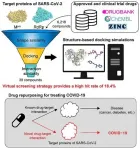
ELSE PRESS RELEASES FROM THIS DATE:
2021-07-08
Washington, DC (July 6, 2021) --The International Whaling Commission (IWC) was founded to regulate whaling. Today, it also increasingly focuses on the value of live whales for planetary health. A new workshop report confirms the great ecological value of whales to help mitigate climate change, transport nutrients, enhance marine productivity, and promote biodiversity in marine ecosystems.
The world's leading experts gathered for a three-day workshop in April that was co-hosted by the IWC and the Convention on the Conservation of Migratory Species of Wild Animals (CMS). The meeting came in response to a 2016 IWC resolution, introduced by the government of Chile, to compile scientific information about the ecological roles of cetaceans (whales and dolphins).
The workshop discussions ...
2021-07-08
Researchers at the National Cerebral and Cardiovascular Center in Japan show that excessive blood pressure reduction for acute intracerebral hemorrhage is risky in people with decreased kidney function
Suita, Japan -- Stroke and chronic kidney disease are both difficult to handle in their own rights, but having a stroke when your kidneys are already poor is more than just double the trouble. A new study led by Kazunori Toyoda at the National Cerebral and Cardiovascular Center (NCVC) in Japan shows that excessive blood pressure reduction for acute intracerebral hemorrhage can have dire consequences when kidney function is low. The study was published in the scientific journal Neurology®.
Intracerebral hemorrhage is a disease for which effective treatment is expected ...
2021-07-08
Rare-earth compounds have fascinated researchers for decades due to the unique quantum properties they display, which have so far remained totally out of reach of everyday compounds. One of the most remarkable and exotic properties of those materials is the emergence of exotic superconducting states, and particularly the superconducting states required to build future topological quantum computers. While these specific rare-earth compounds, known as heavy fermion superconductors, have been known for decades, making usable quantum technologies out of them has remained a critically ...
2021-07-08
A new study suggests sea discoloration data obtained from satellite images as a novel criterion in predicting if eruption looms for an underwater volcano.
There have been frequent eruptions of submarine volcanoes in recent years. The past two years alone recorded the explosions of Anak Krakatau in Indonesia, White Island in New Zealand, and Nishinoshima Island in Japan. Observing signs of volcanic unrest is crucial in providing life-saving information and ensuring that air and maritime travel are safe in the area.
Although predicting when a volcano will erupt can be difficult as each behaves differently, scientists are on the lookout for these telltale signs: heightened seismic activity, expansion of magma pools, increases in volcanic gas release, ...
2021-07-08
A pioneering cultivation strategy that recreates a mangrove environment in the lab has enabled identification of novel bacteria residing in Red Sea mangroves and will help improve understanding of mangrove ecosystem stability, resilience and sustainability.
Mangroves are highly productive, dominant coastal ecosystems that line between 60-70 percent of the world's tropical and subtropical coastlines. They harbor diverse microbial communities thought to make up 80 percent of the ecosystem's biomass. Many of the microbial species, families and taxa are unknown to science.
The cultivation strategy was developed by a team of KAUST researchers, including Fatmah Sefrji and Ramona Marasco.
"Red Sea mangroves are particularly interesting because they represent an extreme and unique ...
2021-07-08
The aconitase superfamily currently contains four functional enzymes including the archetypical aconitase (referred to as "other aconitase enzymes"), and one hypothetical aconitase X (AcnX). The aconitase enzymes catalyze the homologous stereospecific isomerization, and their three-dimensional structures and catalytic mechanisms including the [4Fe-4S] iron-sulfur cluster are very similar each other (Fig. 1a). Therefore, the aconitase superfamily (enzymes) is a typical example that is suitable for the so-called "recruitment hypothesis of enzyme evolution"; the gene duplication of multi-specific enzymes, followed by the narrowing of substrate specificity (ref. 1).
AcnX (subfamily) is further classified into "AcnXType-I" consisting of a single ...
2021-07-08
Researchers at The University of Queensland, working to gain a better understanding of how brain cells work, have discovered the underlying mechanism of a rare genetic mutation that can cause epilepsy.
Dr Victor Anggono from UQ's Queensland Brain Institute said his team made the ground-breaking findings while researching nerve cell communications, which are an important process in normal brain function.
''We're both excited and astounded to make such an important contribution to the field of cellular and molecular neuroscience,'' Dr Anggono said.
He stressed that the mutation was extremely rare, with only one reported case in the world to date.
Dr Anggono's team studied protein structures, called receptors, that ...
2021-07-08
A study by researchers in the Scene understanding and artificial intelligence (SUNAI) research group, of the Universitat Oberta de Catalunya's (UOC) Faculty of Computer Science, Multimedia and Telecommunications, has developed a method that can learn to identify mosquitoes using a large number of images that volunteers took using mobile phones and uploaded to Mosquito Alert platform.
Citizen science to investigate and control disease-transmitting mosquitoes
As well as being annoying because of their bites, mosquitoes can be the carriers of pathogens. Rising temperatures worldwide are facilitating their spread. This is the case with the tiger ...
2021-07-08
While the UK was in lockdown, certain species of captive amphibians became more visible, a new study suggests.
The COVID-19 pandemic forced the closure of zoos across the UK for several months from March 2020, with gradual re-openings from summer into autumn and winter.
These closures provided a team of researchers, from the University of Exeter and WWT Slimbridge Wetland Centre, a unique opportunity to study the effect of visitor presence on several species of amphibian at Slimbridge.
The project assessed the number of individuals of six species - common toad, common frog, smooth newt, pool frog, golden mantella and golden poison dart frog - visible to observers while their exhibit was closed, when it partially reopened to more staff and when it reopened to visitors.
"Amphibians ...
2021-07-08
Lung cancer has the highest mortality rate of all cancers, and treatment options are extremely limited, especially for patients with oncogenic mutations in the KRAS gene. A great deal of hope was invested in the licensing of immune checkpoint inhibitors, but the reality is that some patients respond very well to this treatment while it is completely ineffective in others. In a paper just published in Science Translational Medicine, a MedUni Vienna research group led by Herwig Moll (Center for Physiology and Pharmacology) identified a potential marker for the success of immunotherapy in lung cancer patients and explained the underlying molecular processes.
K-Ras it is a monomeric G protein that plays a key role in the growth of malignant ...
LAST 30 PRESS RELEASES:
[Press-News.org] Repurposed drugs present new strategy for treating COVID-19
Virtual screening of 6,218 drugs and cell-based assays identifies best therapeutic medication candidates

